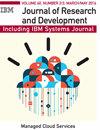发展中国家固体废物管理调查
IF 1.3
4区 计算机科学
Q1 Computer Science
引用次数: 1
摘要
固体废物是一个涉及环境、社会和经济的全球性问题。随着人口、城市化和经济水平的提高,废物的数量不断增加,废物管理成为一个具有挑战性的问题。本文通过对数十本纸质和网络出版的书籍、期刊、论文、机构网站等文献的梳理和整理,拟定了文章的提纲和指导方针。研究发现,在发展中国家,人均每天产生的废物量从0.25Kg到1.38 Kg不等。在南美国家,它被记录为1.07公斤/人/天,在亚洲国家0.4至1.62公斤/人/天,在非洲地区,它被发现为0.49公斤/人/天的废物生产。垃圾中大部分是可生物降解的(50% - 80%)。收集系统非常差,农村地区只有10%至20%的废物,而城市地区的44%至90%的总产生废物被运送到收集和管理系统。发展中国家常用的垃圾处理方式有露天倾倒、填埋、堆肥、焚烧、露天焚烧等。从18%到92%的废物被发现倾倒。东太平洋地区46%和美洲国家68.5%的垃圾被运到垃圾填埋场。焚化炉的使用很少被发现。只有在少数国家可以观察到管理良好的堆肥工厂。一些垃圾填埋场和焚烧厂将产生的电能、沼气、煤砖等排放掉。该领域的研究缺口主要集中在废弃物管理与生物多样性、医药废弃物与危险废弃物管理、蠕虫堆肥等方面。建议提高公众对废物管理的认识,提高当地居民的参与,推广减量化、再利用和循环利用的理念,实现室内废物管理,实现固体废物的现代化和科学化管理。为了完整的解决方案,还需要在废物和管理的不同方面进行进一步的研究。本文章由计算机程序翻译,如有差异,请以英文原文为准。
Investigation on Solid Waste Management in Developing Countries
Solid waste is global problem relating to environment, society and economics. Waste management is challenging issue as the quantity has been increasing with increase of population, urbanization and economic status. Some dozens of printed and online published books, journals, dissertations, website of agencies etc. were reviewed and by making outline and following guideline this article was prepared. It is found that the waste production varies from 0.25Kg to 1.38 Kg per capita per day in developing countries. In south South American countries it was recorded 1.07 Kg/capita/day, in Asian countries 0.4 to 1.62Kg/capita/day and in African region it was found 0.49 Kg/capita/day of waste production. The waste contains mostly biodegradable (50% to 80%). The collection system was very poor and from rural area only 10% to 20% waste and in urban area 44% to 90% of total produced waste was carried to collecting and management system. The common waste management’s adopted in developing countries were open dumping, landfill site, composting, incineration and open burning etc. From 18% to 92% of waste were found to dumping. In east pacific region 46% and in American countries 68.5% of total waste was carried to landfill site. The use of incinerator is scarcely found. Only in few countries well managed composting plants could be observed. Some landfill sites and incinerating plant shave generated electricity, biogas, brickets etc. Some pointed research gaps in this field are waste management and biodiversity, medicinal and hazardous waste management, vermicomposting etc. It can be recommended that for the waste management public awareness, participation of locals, application of reduction, reuse and recycling concept, waste management inside house premise, modernization and scientific management of solid wastes. Further researches are needed in different aspects of waste and management for the complete solution.
求助全文
通过发布文献求助,成功后即可免费获取论文全文。
去求助
来源期刊

IBM Journal of Research and Development
工程技术-计算机:硬件
自引率
0.00%
发文量
0
审稿时长
6-12 weeks
期刊介绍:
The IBM Journal of Research and Development is a peer-reviewed technical journal, published bimonthly, which features the work of authors in the science, technology and engineering of information systems. Papers are written for the worldwide scientific research and development community and knowledgeable professionals.
Submitted papers are welcome from the IBM technical community and from non-IBM authors on topics relevant to the scientific and technical content of the Journal.
 求助内容:
求助内容: 应助结果提醒方式:
应助结果提醒方式:


